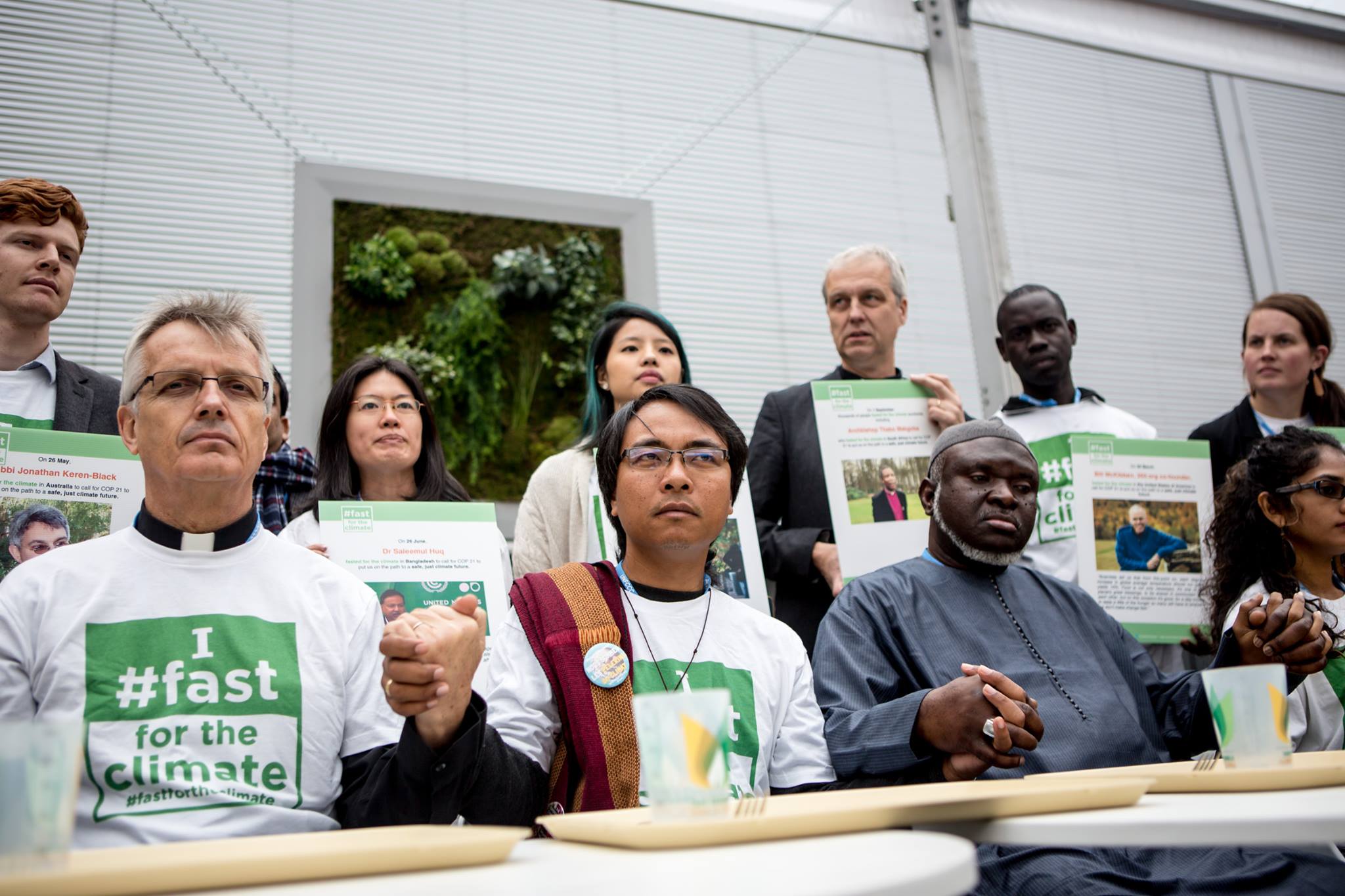We hear about the climate crisis everywhere we turn. With international social movements and young leaders like Greta Thunberg calling for change, the call for quick action on environmental concerns is louder than ever. However, the average person may wonder what they can do to make a difference. Some people have found solidarity in their fight against the climate crisis by participating in Fast for the Climate.
The movement calls on people of different faiths from around the world to fast together to push for climate justice. Inspiration came from Yeb Saño, who gave an emotional speech at the beginning of a 12-day UN climate change conference in Warsaw, Poland in 2013 after part of the Philippines was destroyed by Typhoon Haiyan. Saño, one of the Philippines’ climate negotiators, said that he would not eat during the convention until progress was made to tackle the environmental concerns that had led to such disasters. Every month, people around the world, including Canadians, abstain from eating on the first day of every month in solidarity with those impacted the most by the climate crisis and to send a message to governments. Climate Action Network International, which promotes the fast on their website, also includes health tips for those that want to participate.
It’s hard to get a sense of how many are involved, but a Fast for the Climate Facebook community numbers more than 8,500 people.
Randolph Haluza-DeLay, a Christian who lives in Alberta, has been participating in the fast since 2015. The idea of fasting with other people at the same time appealed to him, he says. Every time he fasts or feels hungry, he is reminded of his motive, which helps keep the importance of the climate crisis on his mind.
“Every month on the first of the month, I would think about climate change,” he says. “For me as a Christian, I think about that God’s called us to take care of the Earth,” he says.
He also says that the practice of fasting is found in many religions, while not all religions may pray similarly, so this form of activism allows people of different faith groups to participate. Being part of Fast for the Climate has helped him feel less alone regarding his concerns for the future of the Earth.
“In many ways, people would say that’s [fasting] not actually doing anything but I don’t feel alone … I don’t have that sense of despair or the feeling alone and what can one person do,” he says.
More on Broadview: South American land defenders on what drives their activism
Outside of fasting, he has also committed to live a less energy-intensive lifestyle. He travels and drives less, and has reduced his possessions to live a simpler and more mindful life.
Imam Ibrahim Kebba Saidy, who lives in Norway, has been participating in the international climate fast for several years. He says that the practice of fasting is an essential part of his Islamic faith, as Muslims fast several times throughout the year, most notably during Ramadan. He was inspired by Saño’s actions and wondered why people like himself could not be in solidarity with those who are suffering. His main environmental concern is the damage to land as well as finding ways to help the communities that have been impacted the most by pollution.
Although much of the work he does involves a variety of different Christian, Buddhist and Sikh groups, Imam Saidy says that all the groups work for a common environmental cause.
“We speak as one voice in advocating for climate justice,” he says.
Broadview is an award-winning progressive Christian magazine, featuring stories about spirituality, justice and ethical living. For more of our content, subscribe to the magazine today.














